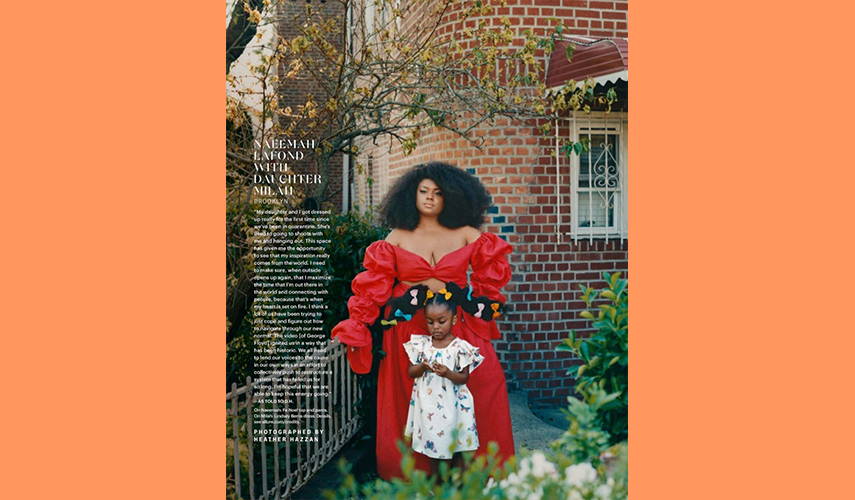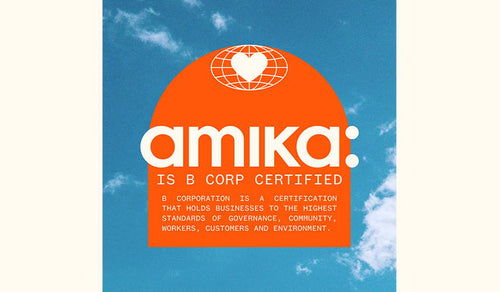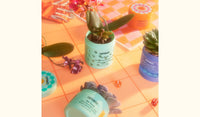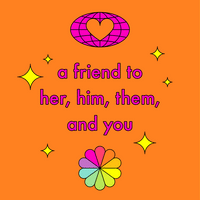an interview with Naeemah LaFond, our global artistic director
image via allure
photographed by @heatherhazzan
As you may have seen, our very own Global Artistic Director, Naeemah LaFond, wrote a detailed guide for the hair industry in support of the BLM movement, titled, “How brands and industry decision makers can support black hairstylists.” She asked and is still asking the industry to take a deep, hard, look at itself to understand where the inherent biases are, as self-reflection is the only way to move forward.
We wanted to sit down with Naeemah to understand how she’s feeling now, after the black squares have left everyone’s Instagram feeds. What now? Where do we go from here as an industry? How do we keep supporting diversity within the hair industry? And if you haven’t already, make sure to read Naeemah’s guide.
Q: What inspired you to start in the hair industry?
A: "From the time I was a little girl, the feeling of doing hair has always brought me a sense of joy. When I realized that doing something that I’ve always loved was a viable career option, I was hooked."
Q: Tell us a little about your career evolution.
A: "My introduction to hair as a career was during my first 2 years as a freelance editorial stylist. I then went to cosmetology school for my license, and after cosmetology school I worked in the salon for 7 years while still making time to shoot and build my portfolio. The last salon I worked in had their own product line, and I became a lead educator for that brand, a career path that I didn’t realize even existed until that point. After gaining some experience with that company, I then found my home at amika where I’ve been able to lend my creative voice to the brands development, teach on the largest stages worldwide, work in fashion, and build relationships with some amazing stylists in varying sectors of the industry."
Q: How are you doing in this current moment?
A: "Today, I’m fine. I’m not sure what tomorrow’s emotions hold but I think I’m actually slowly adjusting to the instability that this current climate brings. For me, that’s that only way to survive right now. Expect the unexpected."
Q: What was the catalyst that made you want to publish this guide and share your voice?
A: "On May 29, I watched activist Tamika Mallory’s now-viral speech and I was full of emotion—it stirred up something inside of me. On one hand, I felt helpless and overwhelmed by the gravity of the moment, but I also felt compelled to do something. That night, an industry decision-maker reached out and asked if there was anything that she could do on her end to do right by Black people. I wanted to answer her honestly and thoroughly, so I started writing. Writing has always been second nature to me, so I put pen to paper and thought about what I could say that would be straightforward and effective. I realized that I had a lot to say on the topic that was actually not just specific to her but covered many areas of how the industry could change for the better. I can’t speak for everyone in the industry, but I know that what I have experienced and observed is relatable to a vast majority of my peers. If this guide can help open doors and start conversations that will aide Black stylists in any way and help propel their careers, then it accomplished what it was meant to do."
Q: What does this guide mean to you?
A: "For me, it represents me using my voice and my platform to speak out on things that have caused a lot of hurt and struggle for many people. I and many other black people in this industry have had these thoughts for years, so It’s a huge weight lifted off of my shoulders and theirs."
Q: How do you see the hair industry moving forward in the future and what would you like to see in this future?
A: "To be honest, I don’t really know what the future holds but I’m waiting with bated breath and hopeful."
Q: You've received a lot of press for this guide, tell us how that has affected you.
A: "I feel heard for sure, but it has also been a bit overwhelming at times. It can be rough having to unpack the points of this guide on days where I really feel the weight of the fact that as a society, we have much bigger fish to fry. I just have to constantly remind myself that its ok to work on dismantling the parts of the system that I have access to, and that we can all protest and effect change in different ways. It’s definitely been an emotional journey."
Q: What does real change look like to you in this industry?
A: "Real change is being able to look back years from now at the guide I wrote and think how unbelievable it is that this needed to be written at one point in time. Looking forward to that day."
Q: What are some ways the industry can hold itself accountable for racial equality moving forward?
A: "Stay true to everything that you said when you were posting those black boxes on Instagram. Keep that same energy, because now that the air is clear, all eyes are on you."
Q: Any words of advice for someone starting in their career?
A: "I would tell young stylists trying to navigate this uneven playing field that they should remain vigilant. Change is definitely on the horizon. When you know better you do better, so now that we are being vocal and outlining the ways in which we feel advancement can be made, we should have some faith in the beauty, fashion, and film/tv industries and allow them an opportunity to make positive changes. Things won't be different overnight, but we are definitely going to experience a shift. I'm optimistic about it."
Thank you to Naeemah for taking the time to share her thoughts with us!
By Naeemah LaFond, global artistic director
Interviewer: Becca King, community manager





